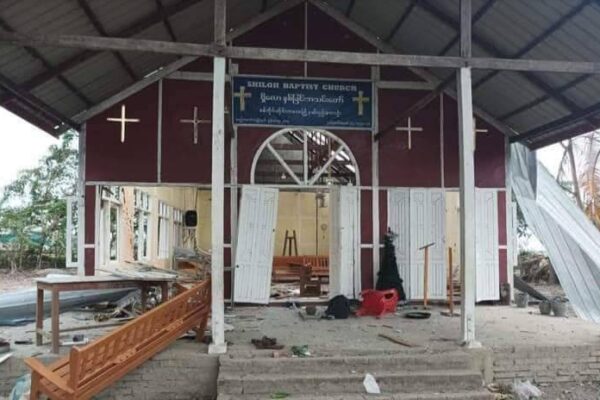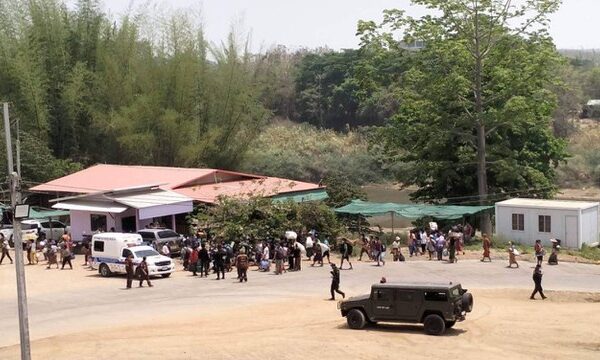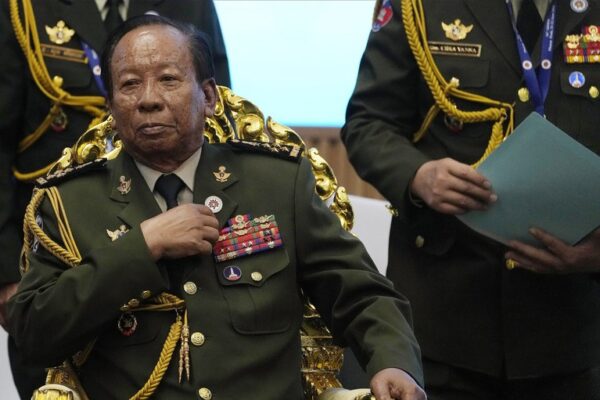
China announces military drills around Taiwan
Forty-two Chinese warplanes and eight ships were detected around Taiwan on Saturday, officials said, as Beijing announced a three-day combat readiness exercise and patrols near the island after the Taiwanese president met with the U.S. house speaker in California. Twenty-nine of the morningtime sorties involved Chinese air force J-10, J-11 and J-16 fighter-jets that crossed the median line of the Taiwan Strait – the de facto boundary between Taiwan and mainland China – Taiwan’s Ministry of National Defense said. It marked the largest incursion into Taiwan’s air defense identification zone (ADIZ) this year. An ADIZ is an area where foreign aircraft are tracked and identified before flying farther into a country’s airspace. China carried out the maneuvers three days after Taiwan President Tsai Ing-wen met with U.S. House Speaker Kevin McCarthy near Los Angeles – the first meeting of its kind on American soil, despite angry warnings from Beijing. The ministry “condemned such irrational actions and will defend Taiwan’s security with solid combat readiness,” it said. Also on Saturday morning, the People’s Liberation Army (PLA) Eastern Theater Command announced in a statement that “United Sword” drills would take place from April 8 to April 10 “as planned.” The Command’s spokesman, Col. Shi Yi, said the exercise would be held in the Taiwan Strait and in the sea and airspace to the north, east and south of Taiwan. Last August, the Eastern Theater Command held a week-long military exercise around Taiwan right after then-U.S. House Speaker Nancy Pelosi visited the island. China considers Taiwan a Chinese province and has repeatedly protested against support extended by “external forces” to the island. In addition, the Chinese military will conduct live-fire drills for five days in April in waters off Fuzhou, the capital of southeastern Fujian province near Taiwan, according to the provincial coast guard, which issued a navigational warning for the area. Another live-fire exercise will be held on April 10 at Pingtan island in the Taiwan Strait. Aircraft of the PLA Eastern Theater Command conduct joint combat training exercises around Taiwan after the visit by U.S. House Speaker Nancy Pelosi, Aug. 7, 2022. Credit: Xinhua via AP Taiwan’s defense ministry said it was monitoring the situation and would respond accordingly “to defend our country.” In recent years, China has “continued to send aircraft and ships to harass the region,” the ministry said in a statement. “It even used President Tsai’s visit to the United States as an excuse to conduct military exercises, which has seriously damaged regional peace, stability and security.” Taiwan’s military would respond calmly and rationally in order not to escalate tensions, it said. On Thursday, after the Tsai-McCarthy meeting in California, Beijing promised to take “strong and resolute measures” as it condemned the U.S. for “crossing the line and acting provocatively” against China. “This [the meeting] is essentially the United States acting with Taiwan to connive at ‘Taiwan independence’ separatists’ political activities in the United States,” the Chinese Foreign Ministry said in a statement. “It seriously infringes upon China’s sovereignty and territorial integrity.” President Tsai is now back in Taipei. Upon her arrival on Friday, she said her trip proved that “when facing pressure and coercion, Taiwan will only become more unified.” “We will never give in to attempts to hold us down, nor will we shy away from obstacles or cease engaging with the world,” Tsai said during remarks at Taoyuan International Airport.







